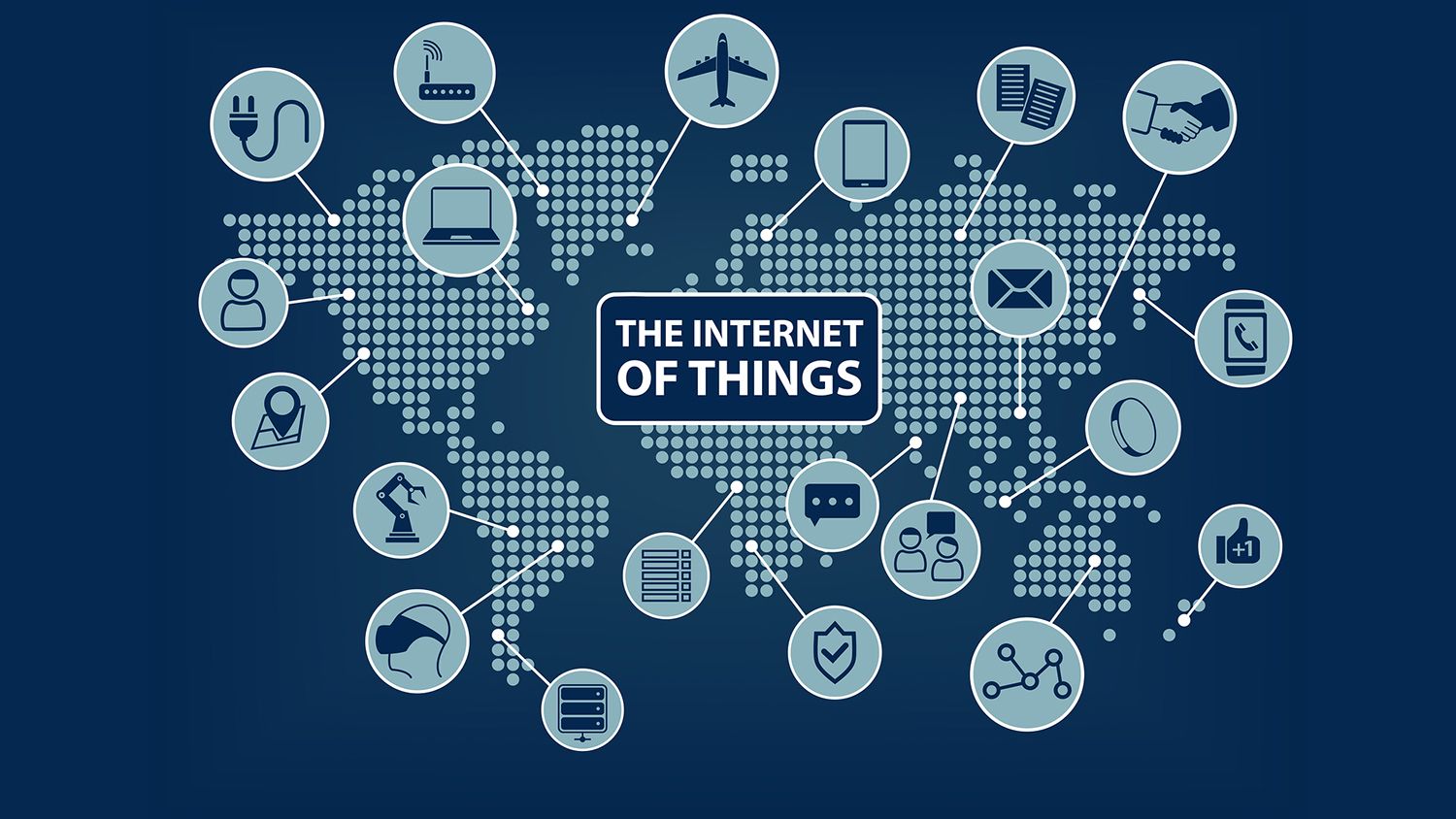According to IBM, 96% of leaders report Covid-19 will accelerate their digital transformation by an average of 5.3 years. This statistic indicated that the digital transformation era has arrived, bringing with it various technologies that enterprises may investigate. Businesses must change and quicken the adoption of cutting-edge technologies and catch up with outstanding digital transformation trends.
It is high time for organizations to modify their strategy and accept the changes that are most likely to substantially impact the customer experience if they want to stay competitive in this fast-changing environment. In this blog, Magenest helps you to update the most recent developments in digital transformation.
Table of Contents
Definition of Digital Transformation

Digital transformation refers to the process of utilizing digital technology to create new or modify current business processes, culture, and customer experiences to meet evolving business and market requirements. Customer expectations frequently drive digital transformation. To thrive, businesses must comply with digital transformation.
Indeed, many businesses believe that they must transform to the changing market forces driven by digitization. By 2021, 56% of companies plan to prioritize digital transformation. The goal of digital transformation is to improve performance, create new revenue streams, improve customer experience, and drive growth.
Top Latest Digital Transformation Trends
Digital transformation is a continuous journey that requires organizations to continuously adapt and evolve to meet the ever-changing needs of their customers. To help you stay ahead of the curve, here are the top 10 digital transformation trends that will shape business in 2024.
Everything as a Service (XaaS)
Everything as a Service (XaaS) is one of the biggest digital transformation trends that we think will continue to gain traction in 2024. XaaS is a business model where organizations offer their products and services as a subscription-based services. There is a broad category of services related to cloud computing and remote access, such as software as a service (SaaS), platform as a service (PaaS), infrastructure as a service (IaaS), communications as a service (CaaS), network as a service (NaaS),…
Due to the fact that many kinds of IT resources or services are now delivered this way, XaaS is an ironic term for the proliferation of cloud services. Prior to XaaS being available, businesses can cut costs and get specifically what they need for their particular business processes. Before the emergence of XaaS and cloud computing, businesses often had to purchase and install licensed software packages on-site to create a network. The XaaS model also offers businesses extreme flexibility and scalability. For these reasons, we think XaaS will continue to be a popular choice for businesses of all sizes.
5G
With the promise of fast speeds, low latency, and high levels of reliability, 5G will have a major impact on digital transformation in 2024. 5G is a game-changer when it comes to connecting multiple wireless features. 5G enables businesses to remove the physical connections, stream high-definition video content in real-time, and provide enhanced mobile broadband experiences for consumers. In addition, 5G technology creates immersive entertainment experiences, such as cloud gaming and virtual reality (VR).

5G is finding valuable uses in a number of industries, such as:
- Healthcare: 5G can be used to seamlessly connect remote medical devices and also allow health experts to monitor patients’ health in real-time irrespective of their location.
- Transportation: 5G enables connecting self-driving cars and trucks to the internet.
We believe that 5G will be one of the most exciting digital transformation trends as it empowers exciting technologies.
Artificial Intelligence (AI)
Another big digital transformation trend that we expect to see more of in 2024 is artificial intelligence (AI). AI is a technology that enables machines, especially computer systems to simulate human intelligence processes. Artificial intelligence holds both great promise and many benefits as its efficiency and productivity:
- Multi-tasking
- Execution of complex tasks
- Available 24×7 without interruption
- Time-saving
- Avoid human error
- Use insight to predict customer preferences
More companies, from tech-savvy startups to large corporations, will try to incorporate AI into its solutions and processes. 50% of businesses told McKinsey that at least one business function will be powered by AI.
Total Experience (TE)

We think total experience (TE) will continue to be a major driver of the digital transformation trends in 2024 as we live in the age of customers. Total-experience is a combination of all customer and employee channels, including digital channels (such as website and mobile app) and physical channels (such as retail stores and call centers), into a single one with a consistent experience.
To provide a great total experience, businesses need to have a deep understanding of their customers and their needs. In addition, businesses need to use the latest technologies, such as AI and AR, to personalize their products and services.
The concepts of total experience and customer experience are extremely important in any company’s journey towards success, therefore, we believe TE will be a top digital transformation trend in 2024.
Data Democratization
Data democratization emerged as a result of an insight that data is increasingly important in decision-making. Data democratization is the process of making data accessible to all admins/decision-makers of the companies. It enables companies to make better decisions by giving all employees access to data and also improves collaboration and communication by sharing data across departments.
Although data democratization delivers more benefits for individual businesses, it also has broader benefits for partners and society. Its goal of it is to enable everyone to gather and analyze data without requiring outside help. This, in turn, is expected to open new opportunities and transform the way businesses make decisions.
Customer Data Platform (CDP)

A customer data platform (CDP) is a packaged software that combines data from multiple tools to create a single centralized customer database. Aside from giving businesses a complete view of their customers, there are numerous significant advantages of CDPs, including:
- More organized customer data
- Insightful customer analytics
- Improved data protection and privacy
CDPs will continue to play a major role in digital transformation in 2024 as businesses increasingly focus on collecting, managing, and activating customer data.
Automation
Automation definitely cannot be left out of the top digital transformation trends in 2024. Automation is the use of technology to make processes run themselves. Automation of existing business processes with the help of game-changing technologies improves efficiency and productivity. Businesses will now need to follow automation practices in order to smoothly streamline the deployment of processes.
Some different types of automation include:
- RPA (Robotic Process Automation): the use of software robots to automate repetitive tasks
- Low-Code Platforms: “drag and drop” features for non-technical skills
Internet of Things (IoT)

Internet of Things (IoT) has the potential to accelerate digital transformation within a business, making it one of the most important digital transformation trends for 2024. Internet of Things refers to the connection of physical devices to the internet and to each other, allowing them to collect and exchange data. This data can be used to improve efficiencies, create new business models, and provide better customer experiences.
Gartner predicts that by 2025, the Internet of Things will be in 95% of new product designs. This proliferation of IoT devices is driven by falling costs, increasing computing power, and declining sensor prices. As IoT devices become more affordable and easier to deploy, IoT technologies can be used as keys for businesses to enter digital transformation.
Distributed Cloud
Distributed cloud will be an emerging digital transformation trend in 2024 as more and more businesses move to the cloud. The distributed cloud gives businesses the power to connect data and applications across multiple locations, allowing for faster innovation and better resiliency.
Distributed cloud is the future of the cloud. With it, businesses will be able to take advantage of the best of both worlds – the flexibility and scalability of the public cloud with the security and control of the private cloud.
Augmented Reality Cloud (AR Cloud)

Beyond all other trends, the augmented reality (AR) cloud will easily be one of the most critical aspects of digital transformation moving forward. AR Cloud refers to the technology that digitally augments the real-world environment. Pokemon Go is a great example of augmented reality.
AR Cloud provides businesses with an opportunity to improve communication and connection across their entire ecosystem. By blurring the lines between the physical and digital worlds, businesses can create new customer experiences and connect with employees in innovative ways. Therefore, AR Cloud has promised much hype and gained popularity in digital transformation.
Conclusion
Digital transformation is not a one-time event. It is an ongoing journey that requires continuous innovation and evolution. The most important thing is to have the right agency by your side. With Magenest, we will work with you to understand your needs and provide the best solution to help you evolve and adapt to the ever-changing digital landscape. Contact us today to learn more about our services or check out our ebook for the most practical checklist when creating a website right here.











